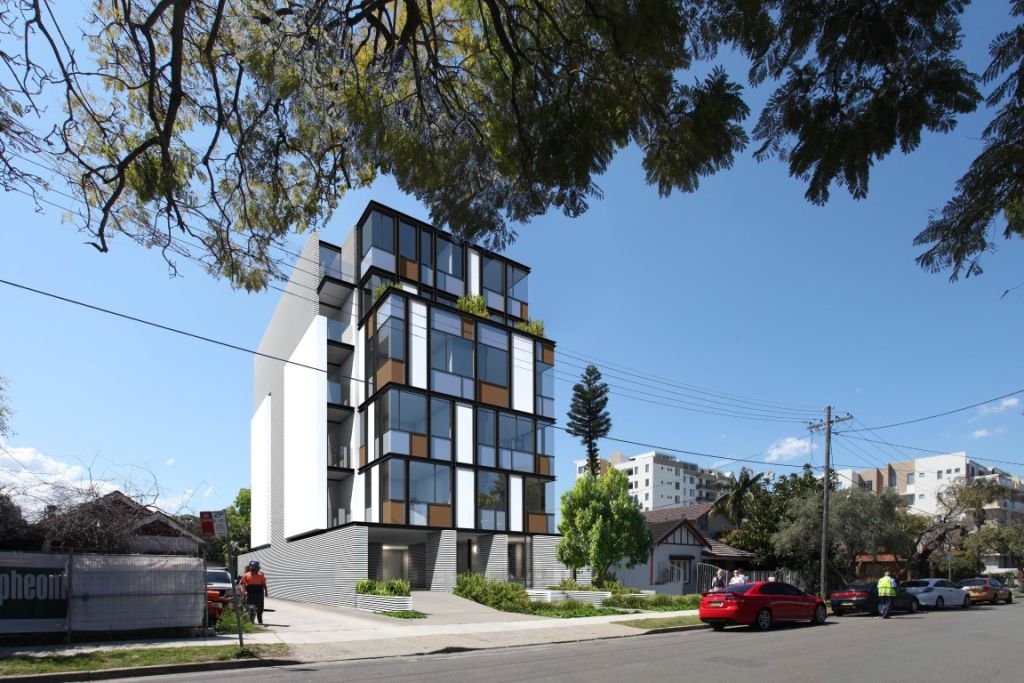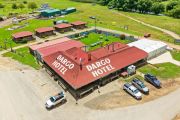
New parking space quotas in NSW creates two-tiered boarding house site market
New legislation forcing boarding house developers to include more on-site car parking is dramatically lifting the price of pre-approved projects, and proving a major disincentive for future schemes.
A number of Sydney land-owners who’d been planning to build new generation boarding houses are now selling off their sites, saying the planning changes are making them too expensive to pursue.
“We went backwards and forwards with council planners for two years,” says one developer, who asked not to be named, from Pemell Lane Holdings. He has a 572-square-metre site in Newtown’s Edgeware Road he’d wanted to turn into 19-room boarding house.
“We thought it would make great sense bearing in mind the crisis in housing affordability and the need for low-cost accommodation. But it was a very long and frustrating process. We ended up in the Land & Environment Court with a single objector but were knocked back, and then the change in legislation came in for more parking.
“Ours is in a fabulous location by train stations and bus routes but they’re insisting on more parking which is a total nonsense.”
Introduced as a result of boarding houses’ neighbours’ complaints that extra residents were placing an intolerable burden on street parking, the car parking allowance went up from 0.2 spaces per room to 0.5 spaces, which came into effect June 1.
The DA difference
With the NSW Government rule change, the Newtown site is now being sold as a blank development canvas to see what kind of price the market might offer, with a guide in the low $2 millions.
By contrast, a smaller site of 520 square metres on Innesdale Road, Wolli Creek, being sold by Savills Australia associate director Nick Tuxworth, equipped with a development approval for a 38-studio boarding house, is now on the market for around $3 million.
“We had 100 inquiries in the first week for that,” says Tuxworth. “There’s definitely been an increase in demand for anything with a boarding house already approved, and they’re now a lot rarer.
“Prices have risen as a result, but I can’t put a percentage on it. There is a lot of weight of capital looking to approved DA sites, and a lot of anger among developers who’d been planning boarding houses but with the changes they’d have to put in more car parking which would make it too expensive.”
He has another site too with a 15-room boarding house already approved, built and leased on Frederick Street, Rockdale, which is now for sale with a price guide of around $3.5 million. Meanwhile, a 700-square-metre block on Chandos Street, Ashfield, that had originally been planned to house 30 rooms is now being sold as a raw site, with no pre-approval, in the mid to low $2 millions.
Other commercial real estate agents are encountering similar situations. Victor Kelly of Victor Kelly Estate Agents is currently selling an art gallery and five-bedroom home in Neutral Bay that could possibly make a good boarding house. “But I think there’s a lot of people now who’ll stop developing boarding houses, with that additional basement parking required,” he says.
“It makes developments not worth doing. Part of their appeal was that they didn’t have to have basements so there weren’t all the additional costs involved. The Government talks about affordability but then they put the handbrake on things that would help.”
The changes to the Boarding House State Environment Planning Policy now provide for more parking spaces for people living in boarding houses as well as reducing the demand for, and impact on, street parking, says a spokesman for Planning Minister Anthony Roberts. The move is attributed to concerns expressed at meetings with councils and communities.
“This will take cars off the streets and also provide more parking for boarding house occupants,” says the spokesman. “By providing more parking spaces for boarding house residents, wider community amenity is greatly improved.
“Boarding houses are an important part of the housing diversity in this state. They provide accommodation options for a variety of residents including students, retirees, young couples or people working in key service industries.”
A blow for affordability?
For investors, such schemes were previously a win-win, believes Property Investors Council of Australia Chair Ben Kingsley. The new generation boarding houses were projects that were, for his members, high-yielding investments as well, at the same time, providing accommodation for renters who were challenged by affordability issues and limited vacancies.
“They were providing newer and fresher boarding houses, and were doing a good job, but they’re now being penalised for it,” he says. “The new legislation on car parking often makes it too expensive and too hard to develop boarding houses now which is a blow for affordability.”
Those campaigning for low-cost housing options, however, argue that the boarding houses don’t make much of a contribution. With rents often around $400 a week for much smaller spaces with fewer facilities than a regular residential tenancy, they’re still unaffordable for many, says Tenants Union of NSW senior policy officer Leo Patterson Ross.
“We’re a little sceptical that they’re having an impact on affordability,” he says. “We would leave the car parking issue to the city planners, but we see these as micro apartments with regular residential tenancy agreements which we would question are achieving the aim of reducing unaffordability.”
Shelter NSW chief executive officer Karen Walsh agrees with his assessment. “These aren’t actively delivering affordability,” she says. “That isn’t an outcome we are seeing, which is disappointing.”
But whatever their merits, the indications are that we’ll see a lot fewer boarding houses being built in the future. While Northern Beaches mayor Michael Regan, who’s seen a lot being developed in the past, says it’s too soon to tell whether there’ll be a drop in the number of applications, developers seem to be already retreating.
Rebecca Roberts of CI Australia, currently selling a 4,659-square-metre site at Condell Park, for which an architect has drawn up plans for a three-storey, 114-unit boarding house, says the changes are making it all too hard.
“The new legislation is really affecting the developers,” she says. “With the parking, some are now finding these developments no longer stack up for them. They don’t make financial sense.”













